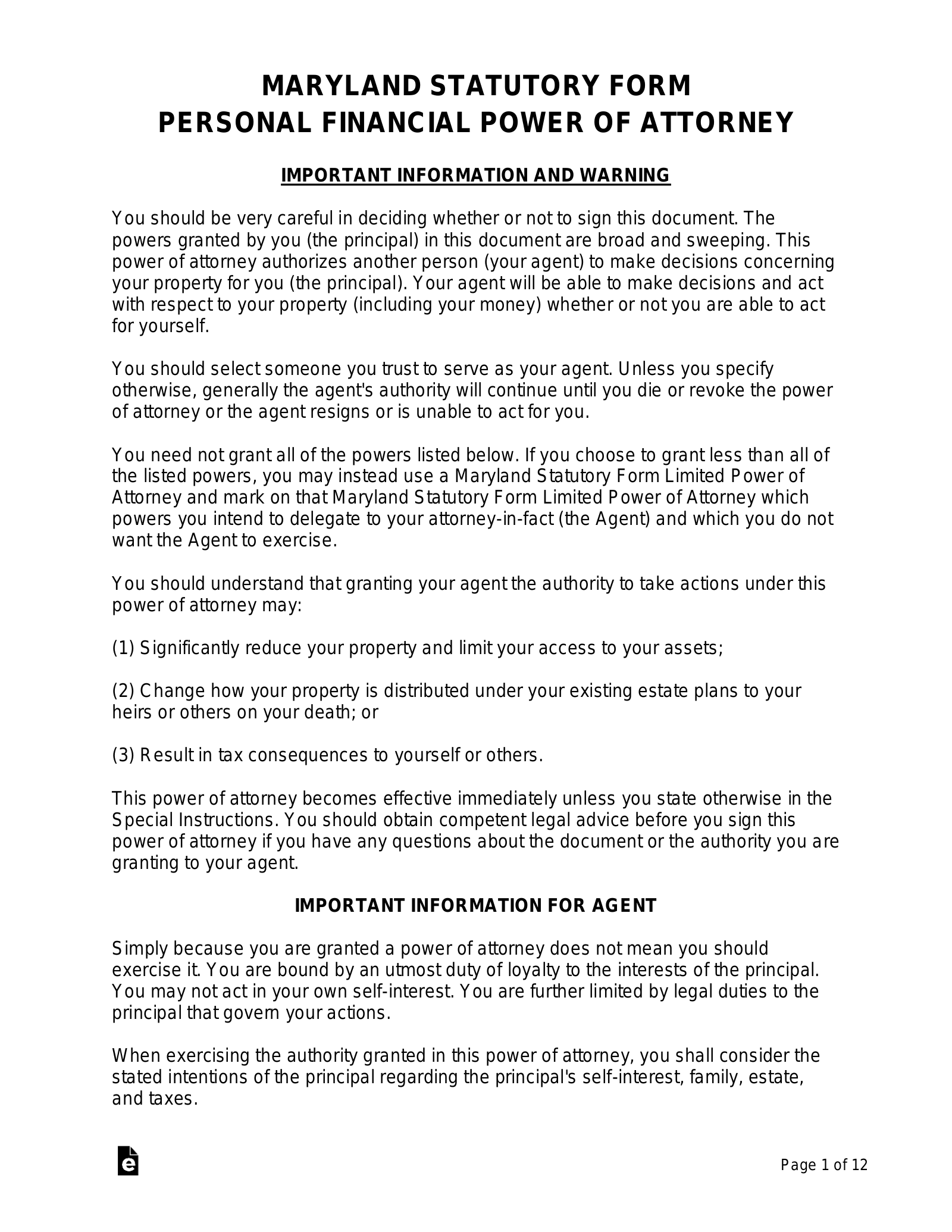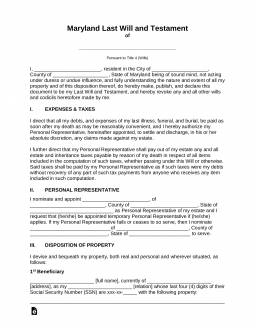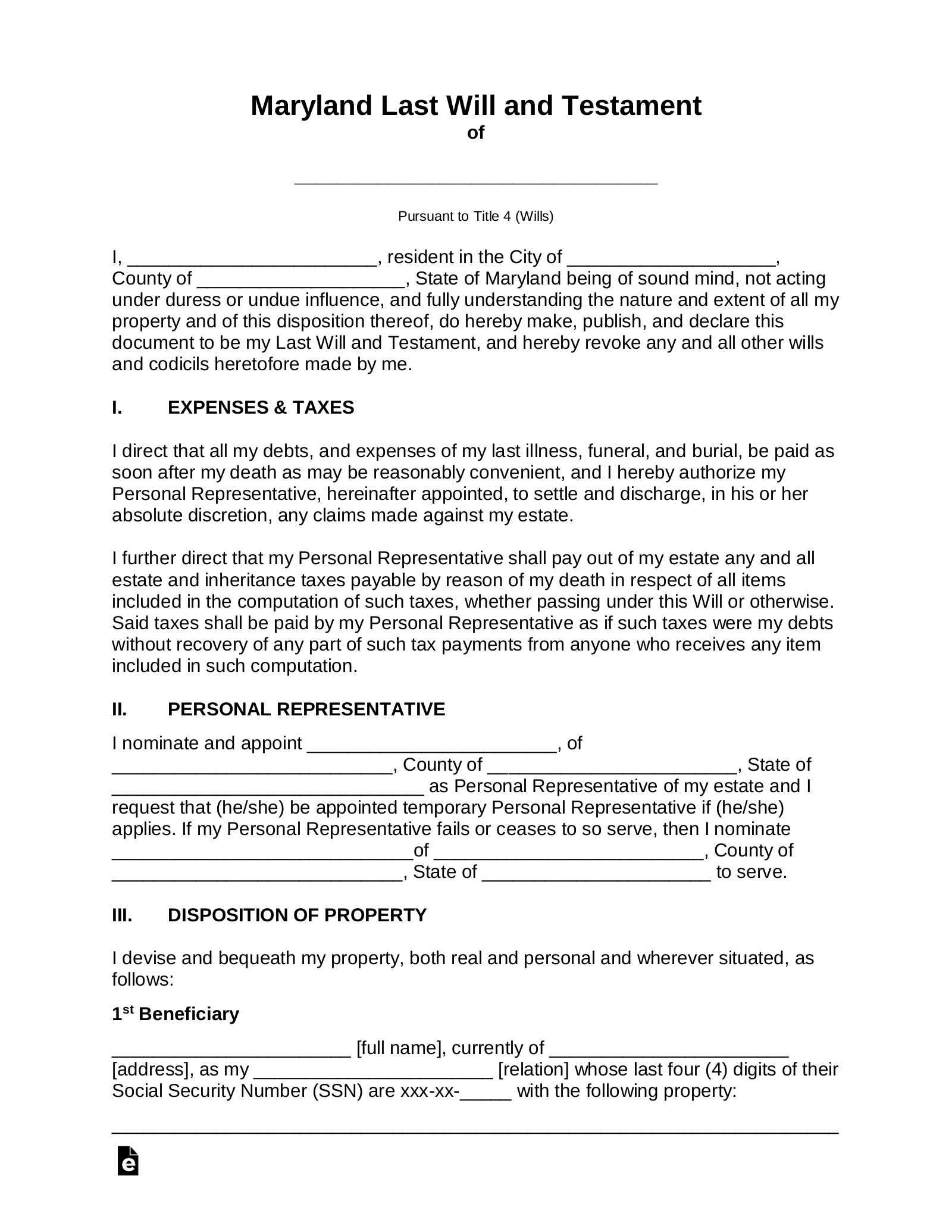Updated November 15, 2023
A Maryland last will and testament is a legal document in which an individual, known as a testator, outlines how their estate must be distributed upon their death. Through a will, the testator can designate beneficiaries and include instructions on how to manage their real and property, bank accounts, fiduciary assets, life insurance policies, digital property, and more.
Signing Requirements
Must be signed by two or more credible witnesses in the presence of the testator.[1]
State Definition
“Will” means a written instrument that is executed in the form prescribed by §§ 4-102 through 4-104, and has not been revoked in a manner provided by § 4-105. “Will” also includes a codicil.[2]
Related Forms
Download: PDF
 Durable (Financial) Power of Attorney
Durable (Financial) Power of Attorney
Download: PDF, MS Word, OpenDocument



